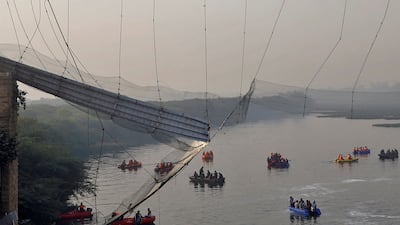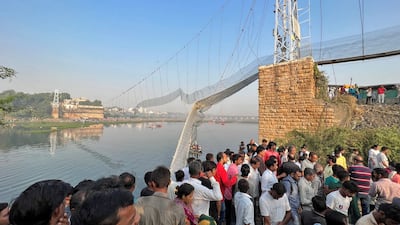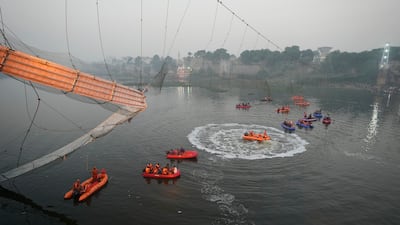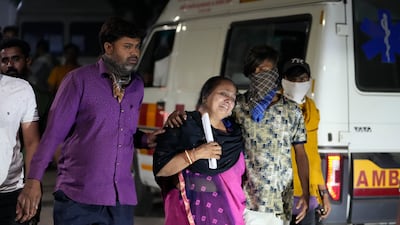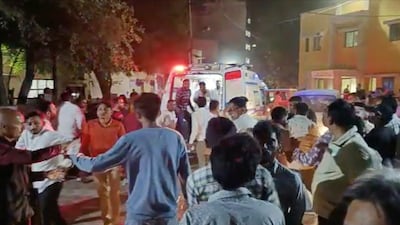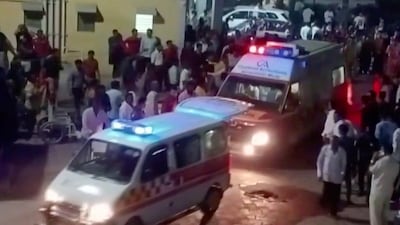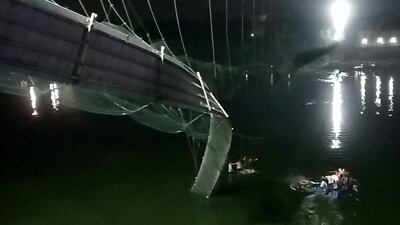The bridge collapse in India's western Gujarat state that killed at least 135 people might have been caused by rusty cables, investigating officers told a court.
The 233-metre suspension bridge, built during British rule in the 19th century over the Machchhu river near the town of Morbi, collapsed on Sunday.
The Victorian-era bridge had been closed for renovations for six months and was reopened last week.
While the capacity of the bridge was reportedly 150 people, more than 500 were on the structure at the time of the collapse, mostly women and children who had gathered to perform rituals for the Hindu festival of Chhath puja and Gujarati new year.
The renovation work was undertaken by Oreva Group, which specialises in wall clocks and electric bikes.
It charged 17 rupees ($0.21) for a ticket, but officials told local media that the group did not have permission to reopen the bridge as it did not have a municipality test certificate for the structure.
PA Zala, deputy superintendent of police in Morbi who is investigating the incident, told a local court on Tuesday that the cables were rusty and had not been repaired.
He said that a cable had supported the bridge and there was “no oiling or greasing”.
“The cable had corroded from the point where it snapped. This incident would not have occurred if the cable had been repaired. No records of the work that was done or how it was done have been kept,” Mr Zala said.
The prosecution told the court that the contractors who worked on the renovation work lacked appropriate training. It claimed that the flooring of the bridge had been changed but the cable was left untouched.
HS Panchal, the prosecutor, said that the forensic report mentioned that the cables of the bridge were not replaced and could not take the weight of the bridge.
“The weight of the bridge increased due to the four-layered aluminium sheets for the flooring and the cable snapped due to that weight,” Mr Panchal said.
Nine people, including Oreva staff, ticket-booking clerks and security guards have been arrested in connection with the tragedy.
The magistrate's court remanded the two managers of Oreva Group, Dipak Parekh and Dinesh Dave, and two subcontractors, Prakash Parmar and Devang Parmar in police custody until Saturday, while five other men were sent to judicial custody.

Police said everyone who had been on the bridge was now accounted for. However, several agencies were still searching for bodies believed to be trapped in the rocky river bed.
VVN Prasanna Kumar, the commandant of the National Disaster Response Force, told local news channels that the high number of casualties could be because of the rocks.
While the river water was stagnant and about 6 metres deep in the middle, the floor of the river was rocky and muddy.
“People hit the rocky bottom after falling into the river with great force … this is why many people were injured and killed,” Mr Kumar told New Delhi Television.
